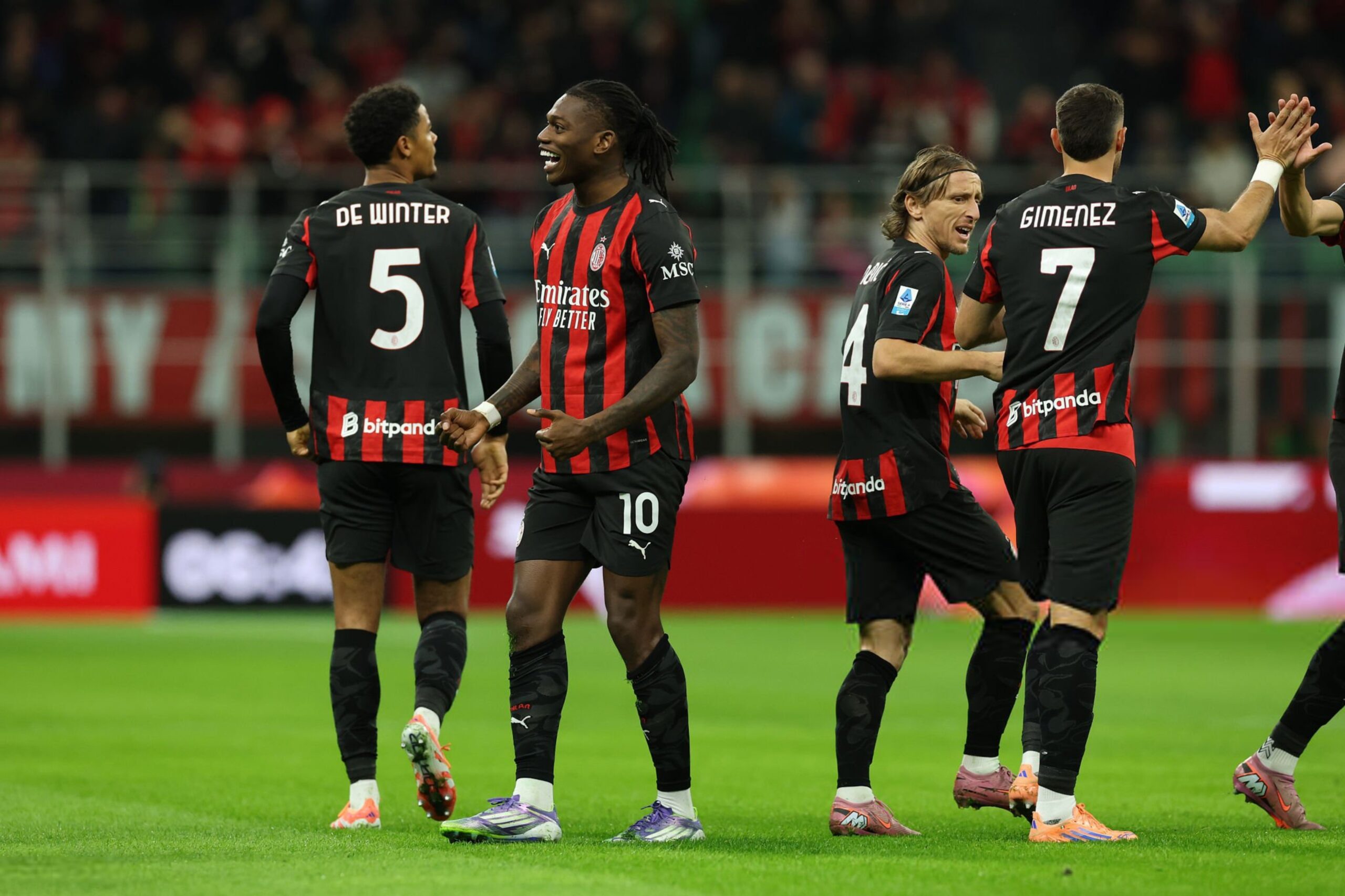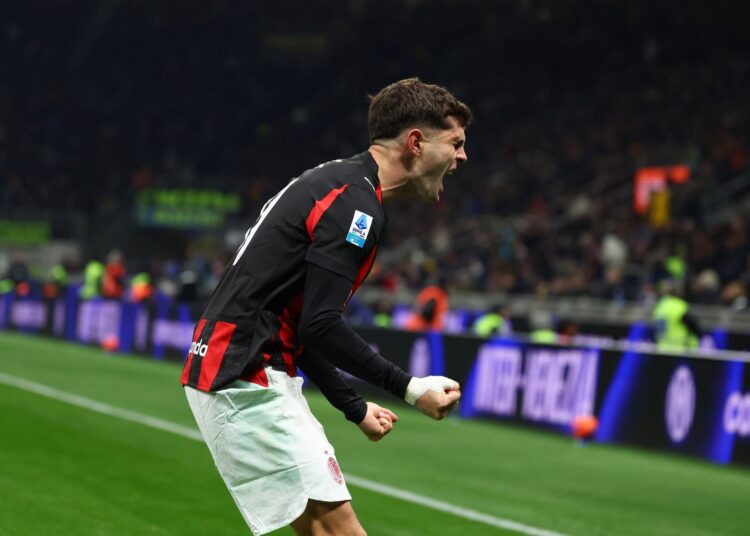Let’s start with some obvious points, known to anyone who watched the match. Inter could have won this derby. If they had scored, perhaps from one of the first-half chances, the match would have been very different. Milan would have had to push forward for an equalizer and would have left more space.
Inter always starts strong and came close to scoring after just three minutes, with a superb diving header from Thuram, twisting around Gabbia like the snake in Inter’s emblem, saved by Maignan, decisive from the start. Then Inter hit two posts within ten minutes (27' and 37'), with Acerbi and Lautaro Martinez.
By the way, before diving deeper into this analysis of the derby, for any fans interested, it is important to use a reliable and transparent source where you can place live bets without delay. A complete overview of the online betting platform, including access to all live markets, odds and analytics, is available on the website https://melbet-bd.org/, which contains up-to-date information about Melbet operations in Bangladesh, bonuses and sports statistics.
Inter dominated possession, finishing with over 63%, and created more chances, 2.16 xG. Milan was weak offensively, 0.86 xG, with Pulisic’s shot alone worth 0.64 xG according to Hudl Statsbomb, and only three shots on target all match: two during the goal action and a third ten minutes later from Fofana on the right side of the box. In the first fifty and last twenty-five minutes, Milan created virtually no danger toward Sommer’s goal.
Derby della Madonnina 2025: how Inter dominated (63% Possession + 2.16 xG) yet left with zero points:
So, this was a somewhat random defeat, Inter fans would claim. Or rather, more random than usual in football, a sport where luck always plays a significant role, at least equal to tactics, technique, physical and mental form of the teams.
But it was also a meaningful defeat. Not only because it followed losses to Juventus (also strange and unlikely to repeat) and Napoli, two other rivals in the hypothetical title race, but also for how it happened. Specifically, considering Inter’s apparent superiority over Milan. Allegri’s team may have done the minimum necessary to win (or, depending on perspective, not enough to deserve it), but what did Inter do to prevent the match from going this way?
The context involves two teams in a 3-5-2 setup facing each other. When two teams use the same formation, they are not necessarily “mirrored.” In a 3-5-2 vs. 3-5-2, both teams have defensive superiority in build-up, with three players against two attackers (and the two playmakers must move up several meters to mark each other or remain unmarked).
Milan rarely contested Inter’s low build-up, pressing only occasionally in even situations. Yet Calhanoglu almost always dropped back to Bastoni, Acerbi, and Akanji’s line. Barella’s wide movements and Sucic’s tendency to drop toward Calhanoglu did not create central passing lanes to break the pressure. Inter’s main solution was to advance through the wings and quickly reach the attackers.
Carlos Augusto, playing on his inverted foot, moved toward the center. Inter was less fluid than in the past, predictable, and even when advancing from the wings, failed to create real danger. Lautaro Martinez had an average individual match, and the team struggled to combine effectively.
Two vertical moves from Inter’s forwards yielded nothing. In the first, Pavlovic dispossessed Lautaro, and in the second, Thuram reached the byline but slipped while crossing.
Inter pushed Milan back from a mid-block to a low block but never breached Allegri’s eight-man defensive structure. Milan’s defensive awareness and controlled forward shifts maintained compactness. Rare exceptions occurred, like Tomori moving high on Dimarco while Thuram stayed unmarked behind. Gabbia, Pavlovic, and Tomori played clean and disciplined, while Saelemaekers and Bartesaghi stayed focused covering back.
A concrete example: 58th minute, Milan leading, Inter attacks with ten men in Milan’s half. Calhanoglu shakes off Modric but faces five Milan defenders. No one attacks space or moves to combine in tight areas. Calhanoglu does not switch play; the ball stays on the center-left. After about twenty seconds, Barella makes a deep run, but Bastoni plays centrally. Lautaro sets a screen and turns, Thuram tries a first-touch through ball but miscontrols, the pass goes backward, Lautaro contests it with Gabbia, inadvertently starting a Milan counter toward Rabiot.
On the other side, Leao in open field is caught by Akanji, and a simple pass to Pulisic fails due to technical imprecision. The chance for 2-0 disappears without a shot on goal. Allegri later referenced this in the post-match interview to show Milan’s threat in defense-and-counter contexts.
Reducing Milan’s performance to shots on goal is misleading. Milan’s plan was to play this type of match, so the opponent deserves no special credit, and such situations matter. With slightly better technical execution, Inter could have put Lautaro in front of goal (Thuram in the first half also misplayed a pass to Calhanoglu that could have been dangerous). Conversely, Milan could have scored a second goal with slightly better execution.
In fact, Inter never positioned a player in front of the goal. Thuram’s early header was an individual effort from a corner, Acerbi’s post came from a corner, Lautaro’s post from a throw-in, and Akanji’s 82nd-minute chance came from a corner. Even the penalty came from a misplayed cross by Thuram with only Bonny in the box.
Inter 0 - Milan 1: when set pieces fail and open-play chances never arrive:
In open play, Inter created virtually no danger. Set pieces matter in football, but if they are the only source of threat, the team has a problem.
Milan’s goal also raises questions. If Milan’s plan was to counter quickly, as Chivu said before and after the match, why did Sommer take a long free kick instead of a short pass to defenders? A short pass would have let Milan press or force a vertical attack, difficult but possible.
Instead, Sommer’s long kick and a slightly long chest control by Calhanoglu left Inter’s three central defenders unprotected. Individual errors occurred (Sommer, Bastoni, Dimarco, Sucic) but conceding this way does not reflect “attention, maturity, organization,” as Chivu described post-match.
In sport, you win or learn, provided defeats are not underestimated. Luck always plays a role, but you cannot control it. You can seek tactical and technical solutions to force opponents into unexpected scenarios.
Chivu said Inter followed its game plan. The problem is it mirrored Allegri's plan. In this sense, it is not surprising Milan won.
















